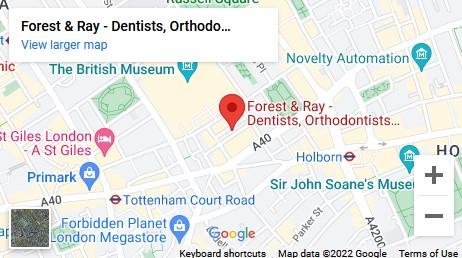Table of Contents

What is a toothache?
A toothache is pain in or around a tooth, typically caused by inflammation of the dental pulp. The pulp contains nerves and blood vessels, making it highly sensitive. When the pulp becomes irritated or infected, it can lead to pain that may radiate to the jaw, ear, or even the head. The intensity and nature of the pain vary depending on the underlying cause, which could include cavities, gum disease, or trauma.
In some cases, the pain might be intermittent, triggered by specific stimuli like hot or cold foods. In other cases, it can be constant and severe, requiring immediate dental attention.
How toothache affects daily life
Toothache can significantly impact a person’s quality of life. Imagine hesitating before every bite of food or sip of coffee, worried about triggering sharp pain. This hesitation can lead to dietary restrictions, potentially causing nutritional deficiencies over time. Persistent pain can also make it difficult to focus at work, study, or enjoy social activities.
Beyond the physical discomfort, toothache often brings emotional distress. Chronic pain can lead to irritability, anxiety, and even depression, especially if left untreated. The social implications are equally profound; bad breath or visible dental damage caused by decay can make individuals self-conscious, affecting their confidence and relationships.
Common causes of toothache

Several factors can cause or contribute to toothache. Understanding these causes is crucial for prevention and treatment:
- Tooth decay: Cavities are one of the most common causes of toothache. They occur when bacteria in the mouth produce acids that erode enamel, exposing the sensitive dentin layer beneath.
- Gum disease: Infections of the gums, such as gingivitis or periodontitis, can cause pain, swelling, and bleeding. Advanced gum disease may expose tooth roots, increasing sensitivity.
- Dental abscess: An abscess is a pocket of pus caused by a bacterial infection. It can lead to severe, throbbing pain and swelling, requiring urgent dental treatment.
- Cracked or broken teeth: Trauma or biting down on hard objects can crack or fracture teeth, exposing nerves and causing pain.
- Teeth grinding (bruxism): Chronic grinding or clenching can wear down enamel, leading to sensitivity and discomfort.
- Wisdom teeth: Impacted or partially erupted wisdom teeth can cause pain, swelling, and infection in the surrounding gums.
- Sinus infections: Pain from sinusitis can sometimes radiate to the upper teeth, mimicking a toothache.
Preventing toothache

Preventive care is the best way to avoid toothache and other dental problems. Simple habits and regular check-ups can make a significant difference:
- Brush your teeth twice daily with fluoride toothpaste, and don’t forget to clean your tongue.
- Floss daily to remove food particles and plaque from between your teeth.
- Limit sugary and acidic foods, which can contribute to tooth decay and enamel erosion.
- Stay hydrated and rinse your mouth with water after meals if brushing isn’t possible.
- Wear a mouthguard if you grind your teeth at night or play contact sports.
- Schedule regular dental check-ups and professional cleanings at least twice a year.
Treating toothache
The treatment for toothache depends on its cause. A dentist will typically perform an examination and may take X-rays to identify the problem. Here are some common treatments:
- Fillings: Cavities are treated by removing the decayed portion of the tooth and filling it with materials like composite resin or amalgam.
- Root canal therapy: For infections or damage to the tooth pulp, a root canal treatment removes the affected tissue and seals the tooth to prevent reinfection.
- Dental crowns: Severely damaged or decayed teeth may require a dental crown to restore their shape, strength, and function.
- Tooth extraction: In cases where a tooth is beyond saving, a tooth extraction may be necessary. This is often followed by replacement options like implants or bridges.
- Antibiotics: For dental abscesses or severe infections, antibiotics may be prescribed to control the infection before further treatment.
While professional treatments are essential for addressing the root cause, over-the-counter pain relievers and home remedies like saltwater rinses can provide temporary relief until you can see a dentist.
Meet Our General Dental Team
Why trust us?
🦷 Forest & Ray 😊's highly experienced dental team collectively holds over 108 years of expertise in dentistry, ensuring exceptional care and knowledge for our patients.

🦷 Forest & Ray 😊 is a private dentist in London (Holborn, Camden) practice offering a wide range of treatments (basically everything), same-day appointments 7 days a week and affordable prices. The key behind a beautiful smile is self confidence, and success. At Forest & Ray we ensure to help you to the best of our ability. If you place your trust in us, we will make sure you achieve your goals and maintain oral hygiene to the maximum of its capacity. Regardless of any age or condition, we promise painless treatments and a professional team.
When to see a dentist
While some mild toothaches may resolve on their own, it’s essential to seek professional help if you experience:
- Pain lasting more than two days
- Swelling in the face or jaw
- Fever or chills
- Difficulty opening your mouth or swallowing
- Persistent bad breath or a foul taste in your mouth
Conclusion
Toothache is more than just a minor inconvenience—it can disrupt your life and signal serious dental problems. By understanding its causes and seeking timely care, you can protect your teeth and improve your quality of life. For those in Holborn, Bloomsbury, and Camden, 🦷 Forest & Ray 😊 is here to provide expert care and support. Don’t let toothache hold you back—schedule an appointment today and take the first step toward a healthier smile.






